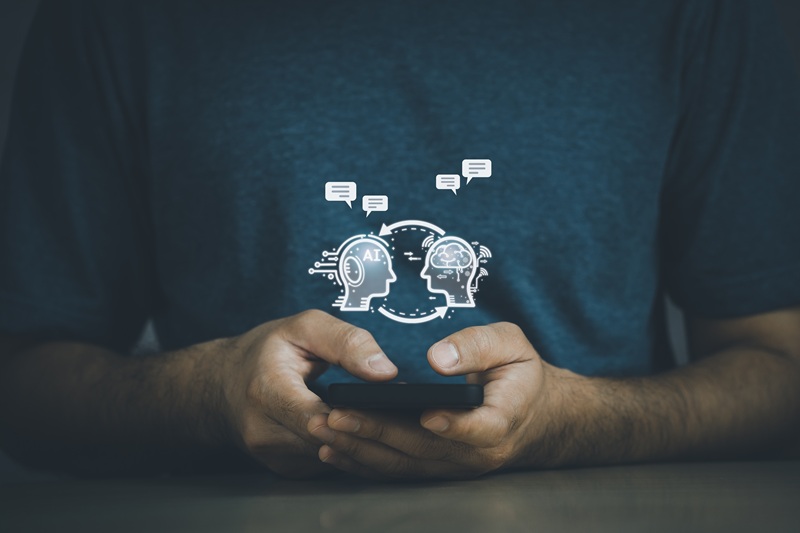Boosting social skills through AI interactions

In an era where digital connectivity often surpasses face-to-face conversations, the role of artificial intelligence (AI) in enhancing social interactions has become increasingly significant. People are discovering new ways to develop their communication abilities through ai-powered interactions, transforming personal development and education. By engaging with AI companions, individuals can practice their conversational abilities in a safe space, without fear of judgment or immediate consequences.
The rise of AI companions
AI companions have emerged as prevalent tools in both personal and professional realms. These digital entities serve as conversation partners who simulate human-like interactions, offering users opportunities to hone social skills without real-world pressure. As technology advances, so does our ability to integrate AI into everyday life, providing valuable learning experiences for users of all ages. AI chatbots, designed to engage users in meaningful dialogues, present alternatives to traditional methods of interaction by offering diverse perspectives and encouraging open-ended discussions.
The appeal of these AI characters lies in their availability and adaptability. Unlike human friends or colleagues, AI companions are accessible around the clock, ready to engage when needed. This constant availability ensures that individuals can practice communication skills at their convenience, whether it's during a lunch break or late at night. Additionally, you can explore innovative solutions for matching and connecting with digital companions at https://www.kupid.ai/.
Human-AI interaction: Building bridges
At the core of this technological shift is the concept of human-ai interaction. By bridging the gap between digital interfaces and natural conversation, humans can experience real-time feedback in a controlled environment. These exchanges provide vital insights into how people communicate, allowing users to adapt their responses and strategies for more effective interaction.
The opportunity to experiment with different communication styles and techniques gives individuals room to grow. AI companions encourage experimentation by removing the fear associated with negative outcomes. As users interact with AI chatbots, they receive objective reflections on their verbal and non-verbal gestures, promoting self-awareness and continuous improvement.
Social emotional learning via AI engagement
Social emotional learning (SEL) focuses on developing competencies such as empathy, self-awareness, and interpersonal skills—attributes essential for successful communication. Many educators and professionals see potential in combining SEL principles with AI technologies, thereby enhancing traditional educational methods.
Through interactive platforms and multimedia tools, learners can experience socio-emotional attributes in action. Virtual classrooms utilizing AI enable participants to engage actively in scenarios designed to evoke emotional responses and cultivate critical thinking. This blend of technology and pedagogy reshapes conventional learning processes, supporting students in refining not just academic knowledge but also emotional intelligence.
Virtual reality in social skills training
Complementing AI applications, virtual reality (VR) is another innovation gaining traction in social skills training. By immersing individuals in lifelike simulations, VR presents various situations where they must navigate complex social landscapes. Scenarios can range from job interviews to casual gatherings, offering a comprehensive approach to skill-building within authentic contexts.
These immersive experiences let participants practice social cues, manage stress, and respond appropriately to nonverbal signals, crucial aspects of confident communication. VR environments combined with AI-driven guidance ensure a personalized learning journey that caters to individual strengths and challenges.
A balancing act: Benefits and considerations
While AI interactions contribute significantly to social skills enhancement, maintaining balance is important. Emotional dependence on technology can arise if individuals prioritize digital over human interactions excessively. It remains crucial to integrate AI engagement alongside real-life socialization to promote holistic development.
Moreover, understanding the boundaries and capabilities of AI technology aids in setting realistic expectations. Although AI chatbots mimic human dialogue patterns, they may lack nuanced understanding of deep emotions or layered context found in human interactions. Recognizing these limits enables users to supplement AI-facilitated practices with genuine human relations for enriched relational growth.
Addressing unique needs and accessibility
A compelling advantage of AI companionship lies in its inclusivity and capacity to cater to unique user needs. Personalized interactions can be tailored to accommodate varying communication abilities, fostering an inclusive environment conducive to learning. Those facing difficulties in traditional settings, such as individuals with autism spectrum disorders or social anxiety, benefit immensely from customizable ai-powered interactions.
These supportive mechanisms reduce barriers and empower participants to express themselves freely, boosting confidence and competence gradually over time. As users progress, AI systems adapt to evolving requirements, ensuring sustained engagement and continuous improvement.
Future prospects: Expanding horizons with AI
Looking forward, the integration of artificial intelligence with cognitive and behavioral sciences opens promising avenues for further exploration. Research explores how emergent technologies refine adaptive algorithms to enhance not only linguistic proficiency but broader socio-cultural understandings as well.
Evolving paradigms anticipate synergistic collaborations between AI developers, educators, psychologists, and communication specialists. Innovative solutions target a spectrum of developmental stages—from early childhood education programs aimed at strengthening foundational skills to advanced modules for existing professionals seeking career advancements.
Community impact and societal implications
The ripple effects of incorporating AI in enhancing social capabilities reverberate throughout communities, shaping future demographic shifts. Bridging gaps across geographical and cultural divides broadens global networks and fosters intercultural dialogue, forging connections based on mutual respect and shared values.
With increasing access to AI-driven resources, societies experience heightened awareness and appreciation for diversity and inclusion. Progress motivated by technological breakthroughs underscores the importance of ethical considerations guiding responsible developments toward equitable futures for all members of society.
